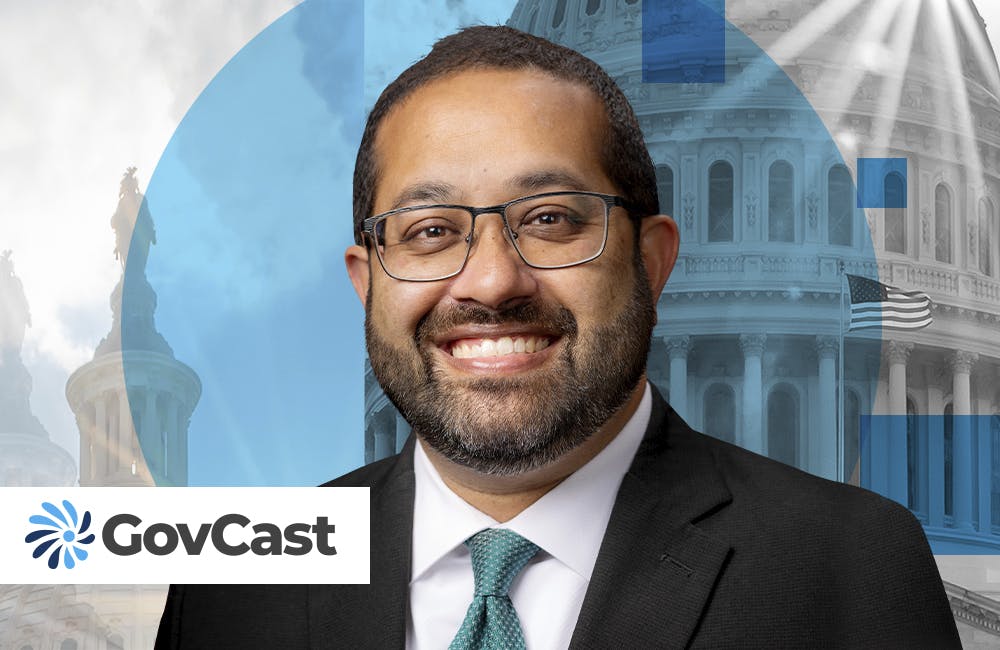Army Medical Command Sees 70% Boost in Virtual Health Care Amid COVID-19
The Army has adopted the technology, especially in mental health care, as DHA has advanced telemedical capabilities.

U.S. Army Medical Command has seen a 70 percent increase in virtual health amid COVID-19, especially in providing its beneficiaries greater access to mental health treatment, Army Surgeon General Lt. Gen. R Scott Dingle said Wednesday.
“Virtual health, telemedicine has blown up as the restrictions of COVID hit our country … to ensure that we’re not exposing beneficiaries, patients, by coming into a facility or to a location” Dingle said in an Association of the U.S. Army webinar. “We have increased our virtual health 70 percent. It has been a phenomenal occurrence of increase in virtual health and the virtual machine platforms.”
Dingle credited the Defense Health Agency for largely leading the rapid scale up and success of telemedical capabilities across the military health system and treatment facilities, noting that the Army has been nested within the DHA’s work of expanding virtual health. Even with DHA’s leadership, the Army has taken its own role in supporting virtual care amid COVID-19, providing its own funding to bolster the technology and to provide virtual mental health care.
“The Army has a big role, in which we’ve not only nested under [DHA], but us coming out and out of our own pockets to support and reinforce and expand virtual health across the Army medical treatment facilities to include … behavioral telehealth,” Dingle said. “It has been an amazing increase in our quality of life task force as the United States Army talks about mental health and access to mental health.”
To support telemedicine and virtual behavioral health, the Army has leveraged telemedicine advancements within the civilian sector, implementing those preexisting technologies across the Army medicine enterprise to scale up quickly in recent months.
The increase of telemedicine care for mental health services especially has helped remove the stigma around mental health care and create more accessibility for beneficiaries seeking it, Dingle added.
“One soldier said it best,” Dingle said. “This particularly soldier said, ‘I understand that we’ve removed the stigma with going to seek mental health.’ But he said, ‘One of the greatest things that encouraged me to seek health was that it was behavioral telehealth, virtual health,’ and he had the option to access and leverage the platform. And he said it was the best thing in the world and allowed him and many others [to seek care], because then he spread the word for more leaders to access and use the virtual platform.”
Dingle not only emphasized mental health care for Army medicine beneficiaries, but also for military healthcare providers who face potential challenges with mental health as they confront the stress of tackling COVID-19 at the front lines on a daily basis. Army Medical Command has done this by implementing behavioral health systems of care that provide mental health relief and provide education on mental health self care.
Even with the internal support that Army Medical Command is providing to its personnel and beneficiaries, it is also continuing to support the greater COVID-19 national response. Dingle said that it has actively recruited retired medical professionals to help at the front lines, both in military treatment facilities and to aid in civilian care, and is aiding the COVID-19 Task Force and executive office in research and development resources and personnel as well
This is a carousel with manually rotating slides. Use Next and Previous buttons to navigate or jump to a slide with the slide dots
-

DOD Has a New Cyber Resiliency Assessment Program
Defense officials tout the continuous assessment feature and scalability of the new program amid increased cyber threats.
5m read -

Transitioning Systems for Modern Agency Missions
IT modernization is a constant process necessary for improving customer service, mission delivery and collaboration.
40m watch -

Cyber Resilience and Recovery Amid Evolving Cyber Threats
Data durability is a key aspect of NIST’s cybersecurity framework for public and private organizations.
21m listen -

How Tech Enables Environmental Justice at EPA
The agency wants to eliminate bias and establish new tech standards to reduce greenhouse gas emissions.
39m listen








